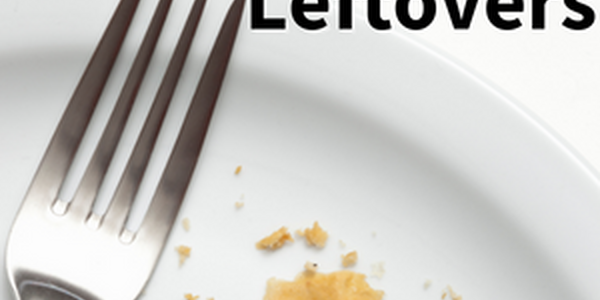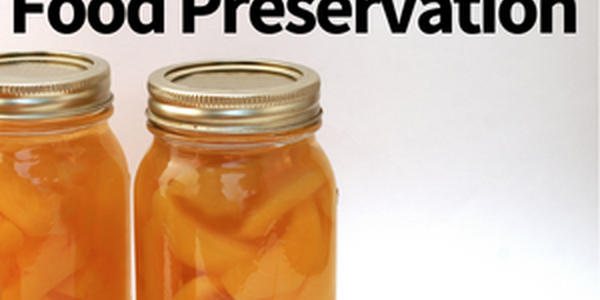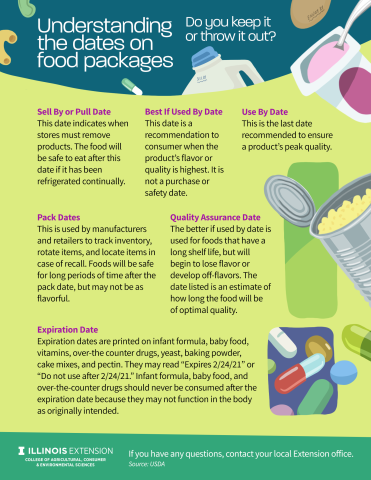Storing Food
Store your food safely and maintain the best quality!
Have some questionable meat in the back of the refrigerator? Unsure if that can of beans is still safe to eat? Let Extension help! Storing food correctly is essential in preventing foodborne illness, stopping food from spoiling quickly, and reducing food waste. Check out our resources below and if you have any questions contact your local extension office and the nutrition and wellness team is more than happy to answer questions!
Safely Storing Food in the Refrigerator
Commonly Asked Refrigerator Questions:
What temperature should my refrigerator be?
40 °F or below Place a refrigerator thermometer in the warmest part of the refrigerator, typically on the top shelf near the door. The warmest part should be 39°F.
What foods should I store in the refrigerator door?
The refrigerator door is usually one of the warmest parts of the refrigerator. Ketchup, mustard, pickles, jams, jellies, or mayo can all be stored in the door of the refrigerator. Highly perishable foods such as eggs and milk should be stored on the middle shelf of the refrigerator, not in the door. This area has the most consistent temperature preventing the eggs and milk from going bad too fast.
How do I get the smell or odor out of the refrigerator?
Try one of these options to get rid of lingering odors:
• Wipe down the appliance with a 1:1 ratio of vinegar and water to destroy mildew.
• Stuff appliances with old rolled newspapers and leave closed for several days before cleaning with vinegar and water.
• Place a large shallow container of fresh coffee grounds or baking soda on the bottom of the appliance.
• Soak a cotton swab in vanilla, and place it inside the refrigerator or freezer with the door closed for 24 hours.
Read more about cleaning various appliances and cookware.
How long is homemade soup good in the refrigerator?
Homemade soup and stews are safe to keep within 3-4 days of initial cooking. Find more refrigeration storage times through the USDA or by downloading the FoodKeeper App
What do all those dates on food mean?
- Sell-by: This date indicates when stores must remove products. Food will be safe to eat after this date if it has been refrigerated. Dairy products will usually be edible at least one week longer than the sell-by date. Eggs will keep 3-5 weeks beyond the date listed.
- Best if used by: This date is a recommendation to consumers when the product’s flavor or quality is highest.
- Use by: This is the last date recommended to ensure a product’s peak quality.
- Pack date: This date, usually used on canned food, is the date the product was packaged and is used by manufacturers for tracking. Since manufacturers use their own system of dating, it may be hard for consumers to interpret the date.
- Expiration date: Infant formula, baby food, and over-the-counter drugs should never be consumed after the expiration date because they may not function in the body as originally intended. Yeast, baking powder, cake mixes, and pectin will also have expiration dates. These may not be as effective after this date, but will still be safe.


.png?itok=ru16MDU7)

